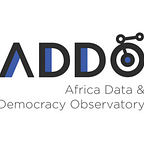The influence of the Russian Orthodox Church in Africa
A plan by the Russian Orthodox Church to build a ‘spiritual centre’ in Uganda raises concerns about its link to the Russian state.
The expansion of the Russian Orthodox Church (ROC) in Africa goes beyond religious outreach and has geopolitical implications. This is according to an opinion piece published on the European Council for Foreign Relations website. The Kremlin and Russian state-backed entities support this expansion.
Why It Matters
Understanding the ROC’s activities in Africa is crucial for Western policy-makers because it highlights Russia’s strategy of using religious and cultural influence as soft power tools, ultimately strengthening its global position.
🧠 What’s Happening:
- The ROC’s involvement in Africa has escalated since Russia’s invasion of Ukraine.
- The church, closely tied to Russian state interests, aims to challenge existing Orthodox churches in Africa and foster conservative, anti-Western alliances.
- The ROC’s expansion in Africa is primarily about enhancing Russia’s image through piety and traditional values rather than straightforward religious conversion.
🔍 Between the Lines
- The ROC seeks to weaken the Orthodox Church in Africa by exploiting a split related to the independent Orthodox Church of Ukraine.
- It has created an African exarchate, challenging the traditional jurisdiction of the Patriarchate of Alexandria.
- The ROC’s actions exacerbate divisions in global Orthodoxy, particularly between Moscow and Greek Orthodox churches.
🖼️ The Big Picture
The ROC’s expansion in Africa is closely tied to Russian state interests, involving state entities and military presence. To finance its growth, the ROC is sponsored by state-backed entities, including Russian Railways, Rosatom, and Rusal. The ROC recruits African Orthodox churches and priests, offering financial support, infrastructure development, and training. Its focus countries are those with Russian interests, large Russian diasporas, and existing Orthodox populations. It is evident its expansion serves as a form of soft power, influencing local politics and religious dynamics.
Read the full opinion piece on the European Council for Foreign Relations website.
Summary by iLAB copy editor Theresa Mallinson and edited by iLAB managing editor Athandiwe Saba.
